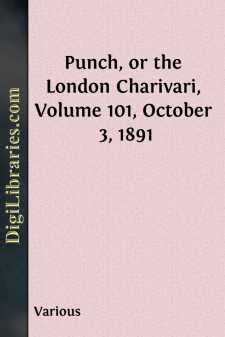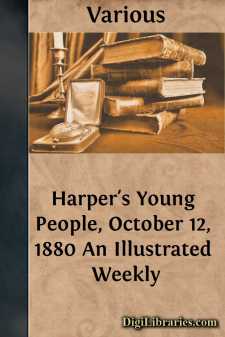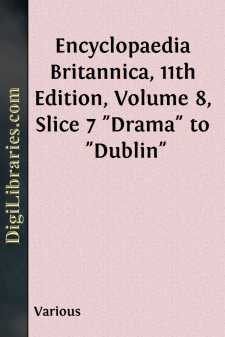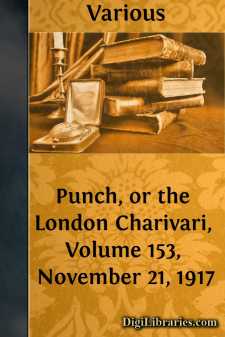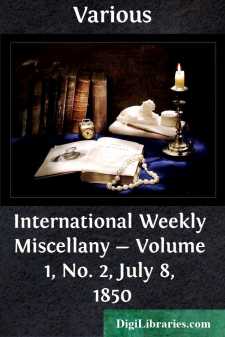Categories
- Antiques & Collectibles 13
- Architecture 36
- Art 48
- Bibles 22
- Biography & Autobiography 813
- Body, Mind & Spirit 142
- Business & Economics 28
- Children's Books 17
- Children's Fiction 14
- Computers 4
- Cooking 94
- Crafts & Hobbies 4
- Drama 346
- Education 46
- Family & Relationships 57
- Fiction 11829
- Games 19
- Gardening 17
- Health & Fitness 34
- History 1377
- House & Home 1
- Humor 147
- Juvenile Fiction 1873
- Juvenile Nonfiction 202
- Language Arts & Disciplines 88
- Law 16
- Literary Collections 686
- Literary Criticism 179
- Mathematics 13
- Medical 41
- Music 40
- Nature 179
- Non-Classifiable 1768
- Performing Arts 7
- Periodicals 1453
- Philosophy 64
- Photography 2
- Poetry 896
- Political Science 203
- Psychology 42
- Reference 154
- Religion 513
- Science 126
- Self-Help 84
- Social Science 81
- Sports & Recreation 34
- Study Aids 3
- Technology & Engineering 59
- Transportation 23
- Travel 463
- True Crime 29
Sort by:
by:
Various
THE TRAVELLING COMPANIONS. No. IX. SCENE—The Burg Terrace at Nuremberg. PODBURY on a bench, grappling with the Epitome of SPENCER. Podbury grappling with the Epitome of Spencer. Podbury (reading aloud, with comments). "For really to conceive the infinite divisibility of matter is mentally to follow out the divisions to infinity, and to do this would require infinite time." You're right...
more...
by:
Various
COACHY. BY ELINOR VEY. The first time I ever saw Coachy she was scratching about on the garden walk, kicking the dirt out in two ways behind her, and then nimbly hitching back a step or two and staring and pecking at the hole that she had made. Every little while she said something to herself in a comical drawling tone, standing on one foot, and looking up at me with curious eye, as if wondering who I...
more...
by:
Various
Medieval Drama While the scattered and persecuted strollers thus kept alive something of the popularity, if not of the loftier traditions, of their art, neither, on the other hand, was there an utter absence of written compositions to bridge the Ecclesiastical and monastic literary drama. gap between ancient and modern dramatic literature. In the midst of the condemnation with which the Christian...
more...
by:
Various
WITH THE AUXILIARY PATROL. An Honourable Record. Many years ago, in the reign of good Queen Victoria, a little ship sailed out of Grimsby Docks in all the proud bravery of new paint and snow-white decks, and passed the Newsand bound for the Dogger Bank. They had christened her the King George, and, though her feminine susceptibilities were perhaps a trifle piqued at this affront to her sex, it was a...
more...
by:
Various
NIGHTMARES. II. OF A T.B.D. CAPTAIN, WHO DREAMS THAT HE HAS FOUND HIS LOG BOOK MADE UP BY MR. PH*L*P G*BBS. Time:—7.30 A.M.—Once more we set out on our never-ending mission, our ceaseless vigil of the seas. The ruddy weather-stained coxswain swung the wheel this way and that—his eyes were of the blue that only the sea can give—in obedience to, or rather in accord with, the curt, mystic,...
more...
by:
Various
THE ALMS-HOUSE. For the purpose of preventing an inconvenient rush of literary tuft-hunters and sight-seers thither next summer, a fictitious name must be bestowed upon the town of the Ritualistic church. Let it stand in these pages as Bumsteadville. Possibly it was not known to the Romans, the Saxons, nor the Normans by that name, if by any name at all; but a name more or less weird and full of damp...
more...
by:
Various
A QUEER CHRISTMAS PARTY. I remember coming home and dressing to go out again. Of this so far I am sure. I remember too taking a cab; also the cab taking me. But oddly enough though I dined that evening with a very old friend, somehow I cannot for the life of me, at this moment, call to mind his name or remember where he lives. However, the evening was so remarkable that I at once sat down next day to...
more...
by:
Various
BRESCIA (anc. Brixia), a city and episcopal see of Lombardy, Italy, the capital of the province of Brescia, finely situated at the foot of the Alps, 52 m. E. of Milan and 40 m. W. of Verona by rail. Pop. (1901) town, 42,495; commune, 72,731. The plan of the city is rectangular, and the streets intersect at right angles, a peculiarity handed down from Roman times, though the area enclosed by the...
more...
by:
Various
The LORGNETTE, the cleverest book of its kind (we were about to write, since the days of Addison, but to avoid possible disagreement say)—since IRVING and PAULDING gave us Salmagundi, is still coming before us at agreeable intervals, and will soon be issued in a brace of volumes illustrated by DARLEY. The Author keeps his promises, given in the following paragraphs some time ago: "It would be...
more...
by:
Various
CHAPTER I INTRODUCTORY The hints which it is the object of this volume to convey are not meant for experienced archaeologists. They are rather addressed to those who, while anxious to observe and record the antiquities which they may see on their travels, are likely, owing to lack of training, to miss things that may be of importance, or, having observed them, to bring home an imperfect record. It is...
more...


